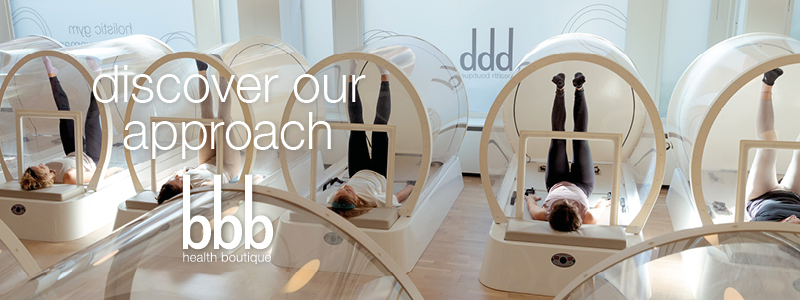gluten and dairy free
improving your digestionThis gluten and dairy free nutrition plan is meant to help you improve your digestion. Stomach complaints can often be caused by a disbalance in your hormones. With an imbalance, the openings in the intestines become larger allowing waste products to be more easily absorbed. As a result of this, one can experience stomach-intestine problems,. To allow the intestines to function better, it is a good idea to watch what you are eating and to avoid products containing cows milk and gluten. These products can be very heavy for the intestines. If you reduce the use of these products, the openings in the intestines can become smaller and
you may be able to find your balance again.
EXAMPLE OF A DAILY MENU
Breakfast
Buckwheat or oatmeal porridge, made with rice-, oatmeal- or almond milk. You can also add cinnamon or grated apple to taste.
Lunch 12:30 pm
Salad of raw vegetables. As an option you can add:
- 50-100gr of legumes, beans, tempeh.
- 50-100gr brown rice, potato, quinoa, all sorts of beans and peas and complete with oil, vinegar and mustard.
Snack
Handful of nuts and/or a piece of fruit and/or a cup of soup.
Dinner
- 1 Cup of home made vegetable soup/broth or a portion of raw vegetables.
- 125-150gr legumes, beans, tempeh.
- Plenty of vegetables.
- 1-2 Serving spoons of brown rice, potato or quinoa.
Snack
Raw vegetables with a dip sauce (e.g. hummus or eggplant mousse) or something from the Variation list below.
VARIATION LIST
Lunch possibilities
- Large cup of vegetable soup with 2-3 rice, quinoa or buckwheat cakes thickly spread. An example of a spread for a rice cake:1/4 of an avocado with hummus, cucumber and capsicum with salt, pepper and a small amount of olive oil. Or homemade vegetable spread with sprouting vegetables
- 4 Rice cakes, chestnut crackers, buckwheat crackers or other gluten-free crackers. Spread thickly.
- You can also make your own bread. Without gluten! Teff-, oatmeal-, soya-, corn- and buckwheat flour are suitable. You can also add olives, sundried tomatoes, basil, nuts and/or dried fruit.
- Consuming a product, every now and then, that is rich in gluten or cows milk can do no harm. Choose then easily digestible grains such as spelt and/or sour dough. Be aware that your body can react strongly to eating
Spreads for on your cracker
- Hummus, eggplant mousse, tapenade, pesto, tartex, pate, tahin.
- Add sprouts, nuts and/or seeds
- For raw vegetables think of tomatoes, carrots, capsicum, cucumber, lettuce, avocado.
- Sweet: fresh fruit, honey, nut(raisen)spread, apple or apple/pear syrup.
Snacks
- Vegetable smoothie, cracker or rice cake with savoury spread and raw vegetables, cucumber with hummus, handful of nuts, olives, half an avocado with salt, pepper and lemon.
- A piece of fruit, fruit smoothie, a piece of raw chocolate or dried fruit.
Carbohydrates allowed
- Brown rice, rice pasta, rice noodles (preferably pasta/noodles made from brown rice).
- Potato, all varieties (preferably cooked in it’s skin).
- Quinoa, amarant, millet.
Healthy tips!
- Limit (or don’t eat any) cows milk products. Alternatives are soya-, oat-, almond- or rice milk. Choose varieties where no sugar has been added. Eat soya products in moderation.
- Limit (or don’t eat any) gluten. Gluten is present in wheat, rye, oats, barley, spelt and kamut. That means that you can’t have most sorts of bread/pasta/dough products. More products are becoming available in healthfood shops that are gluten-free (even bread!).
- Try to avoid refined sugars. These increase the chance of Diabetes type 2 and are addictive.
- Caffeine and theïne increase the stress hormone cortisol. This is the fat storage hormone and, thus, throws your own hormone system out of balance. A good alternative is herbal tea.
- Alcohol has a huge effect on our liver. Many hormones are regulated in the liver. Limit, therefore, the amount of alcohol you drink and drink plenty of water with it.
- Through a change in our hormone system, calcium can be extracted from our bones. Calcium is present in many products such as: broccoli, kale, cauliflower, turnips, dried figs, legumes, seaweed, tahin and nuts. Most people, however, don’t manage to consume the required daily amount through healthy and varied eating. Supplements are therefore advised.
- Vitamin D helps the bones to absorb the calcium. You receive vitamin D through sunlight that enters through the skin and by eating fatty fish. Unfortunately The Netherlands doesn’t have a lot of sun (especially in the winter) and through aging these vitamins are less easily absorbed.
- Are you vegetarian or vegan? Try to get your proteins from plants. For example, choose chickpeas, beans, lentils, seeds, nuts, lentils, tempeh and tofu and supplement with a vitamin B12 preparation.
- It is advisable to eat as much organic and unprocessed foods as possible. These products have not been modified with E-numbers, pesticides, antibiotics and growth hormones.
- Drink enough water to avoid becoming dehydrated. Sometimes a feeling of being hungry is actually a feeling of thirst. Water helps enable the transport of nutrients and oxygen in our body. If you don’t drink enough water, your blood becomes syrupy and the process is slowed down. This results in tiredness.
- Try some superfoods. These are products with a high quality and quantity of vitamins, minerals, micronutrients and enzymes. Examples of superfoods are goji berries, chia seeds, hemp seeds, maca, chlorella and spirulina, bee pollen and raw cacao.
